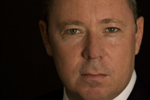 A Charles Sturt University (CSU) academic says that the extremist terrorist attacks in Norway on the weekend targeted people with moderate, mainstream political beliefs, and this should be a focus for both security agencies and public debate in Australia.
A Charles Sturt University (CSU) academic says that the extremist terrorist attacks in Norway on the weekend targeted people with moderate, mainstream political beliefs, and this should be a focus for both security agencies and public debate in Australia.Dr Hugh McDermott, a researcher at the CSU Australian Graduate School of Policing in Manly, says that after the attacks in Norway last weekend that left more than 70 people dead and a nation in shock, there is a need for a reorientation of federal and state policing intelligence resources to focus once again on far-Right extremism in Australia and the influence of these ‘successful’ actions on fundamentalist groups internationally.
“The shocking events in Norway by a Christian fundamentalist who bombed a government centre and perpetrated a shooting attack on a nearby island holiday camp were the acts of an extremist who has admitted links to far-Right neo-Nazi cells,” Dr McDermott said.
“By his actions, he has copied Islamic extremists, thus almost making ‘common cause’ with them.
“The big difference with this attack was that this terrorist did not just target people randomly, like on 11 September 2001 or in the Bali Bombing. He targeted members of the Norwegian Labour Party only, and especially its youth wing and its central office.
“This is a sobering issue for political debate in Australia because these people were killed because of their moderate, mainstream political beliefs.
“In Australia, there is a growing movement that equates adherence to fundamentalist Christianity with hatred of the federal Labor government. There is a growing resentment among fundamentalist Christian and ‘conservative’ political movements that equates godliness with hatred of our federal government.
“In fact, I would go as far as to say there is a hatred of our nation. This is because it is perceived as ‘fallen’ and ‘evil’ due to the fact that mainstream Australia allows women choice, broadly supports gay marriage, immigration from other cultures, and the promotion of a green energy future through a carbon tax.
“While traditional mainstream church congregations have shrunk, new evangelical mega-churches have tapped into widespread economic uncertainty, finding followers among those who are leading an increasingly precarious existence. The activism and wealth of these religious groups have led to significant influence over conservative politics and debate.
“The hatred directed towards the present federal government by political anti-carbon tax demonstrators, and some media commentators, is the sort of white, Christian far-Right extremism we can expect more of, which in turn leads to the promotion of political violence. This can only fuel and fan the fire of hatred and justify the actions of extremist groups.”
Dr McDermott says there is a history to the far-Right religious extremism on the rise today, which is so extreme that it risks our social-democratic values and open non-violent political debate.
“During the 1980s and early 1990s, Australian law enforcement investigated and targeted far-Right political groups such as the National Front, National Action, and the League of Rights. These groups were either directly linked to terrorist violence in Australia, or their members actively took part in criminal violence with racist or political undertones.
“After the events in Norway, and considering the influence that such ‘successful’ actions might have on fundamentalist groups around the world, there is a need for a reorientation of federal and state security and policing intelligence resources in Australia to focus once again on far-Right extremism in Australia.





Social
Explore the world of social